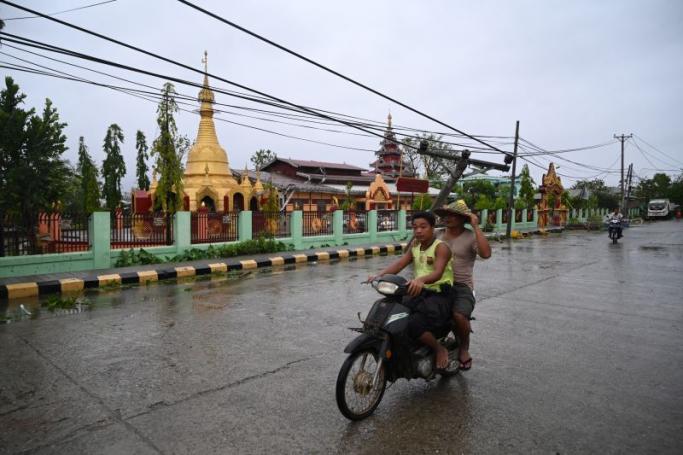Mizzima
Indonesian police arrested a man and a woman this month who are suspected to be behind the trafficking in persons from Indonesia to Myanmar.
Police collected information from the 20 victims who were enticed with false promises of employment in Myanmar. But they were forced to work for online scam.
In another case, six Filipinos claimed they were trafficked to Myanmar and forced to work as cryptocurrency scammers. Later they filed criminal complaints against their recruiters.
The United States Institute of Peace reported last year that over a dozen criminal zones in Myanmar are involved in “industrial-scale” human trafficking and the operation of complex online scams. Some traffickers enticed victims through social media ads promising lucrative office jobs, tricking them into illegally crossing the border to a “scam zone” in Myanmar.
Myanmar, Cambodia and Laos have emerged as "countries of destination" for victims, according to the International Organization for Migration (IOM). International alarm is growing over internet scams in the region that are often staffed by trafficking victims tricked or coerced into promoting bogus crypto investments.
In the past year, Indonesia has rescued more than a thousand of its nationals working in online scams in Myanmar and Cambodia.
Philippine authorities recently rescued over a thousand people from several Asian nations who were trafficked into the country and also forced to run online scams.
Victims tended to be "middle-class graduates who have limited employment opportunities" at home, said Itayi Viriri, IOM regional spokesman for Asia Pacific.
The scam centres were involved in online gambling, cryptocurrency, online money lending and romance applications, Viriri said.
After the Myanmar military coup in 2021, Myanmar has emerged as a preferred location for criminal groups to operate their trafficking and scams. Corrupt border guards are bribed to turn a blind-eye to the human trafficking.
One problematic area is Shwe Kokko Yati New City Project in Karen State that was billed from 2017 to 2020 by as part of China’s Belt and Road Initiative (BRI). However, the National League for Democracy government could suspendes the project. As a consequence, Thailand cut supplying power and telecommunications services to Shwe Kokoo, causing the project to roll to a standstill before 2021. However, just two weeks after the Myanmar military coup in February 2021, the project immediately resumed with restoration of Thai electricity and internet.
Both China and the Association of South East Asian Nations (ASEAN) have voiced concern over their nationals caught up in the illegal trade.
Chinese Foreign Minister Qin Gan visited Myanmar on 2 May and met with Myanmar Military Chief Senior General Min Aung Hlaing during the former’s trip to attend the SCO Foreign Minister’s meeting in India. During his visit in Naypyidaw, Qin Gang urged Myanmar to take effective measures to crack down on cross-border telecoms fraud targeting Chinese nationals, and he also called for a joint law enforcement to tackle the scams.
Various nationals are caught up in the scams. In November last year, at least 12 Filipinos were promised jobs in Thailand, but they were finally trafficked into a Chinese crime ring based in Shwe Kokko to work as crypto scammers.
During the ASEAN Summit this month in Jakarta, member nations vowed to take tougher action on human trafficking as criminals increasingly use social media and other online platforms to recruit and exploit victims.












